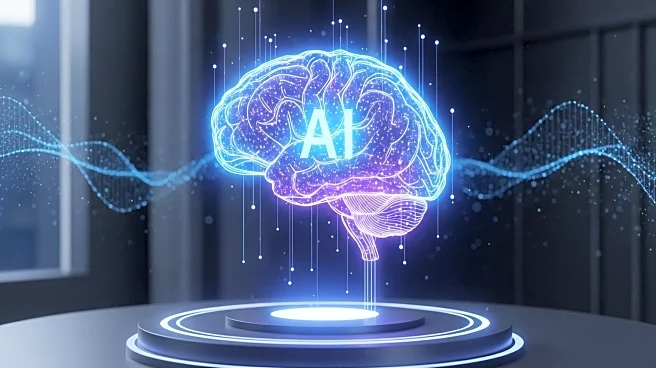What is the story about?
What's Happening?
Corporates are increasingly setting up AI academies to integrate artificial intelligence into their operations and enhance workforce skills. EY launched its AI Academy in July, initially aimed at training employees in GenAI, and has since expanded to work with various industries such as Telecom, Infrastructure, Banking, IT/ITeS, and FMCG. The academy offers tailored programs and sector-specific use cases to build AI capabilities. Similarly, KNOLSKAPE has introduced an AI Academy focused on role-specific, simulation-based learning to build AI fluency across India's workforce. These initiatives aim to address the growing demand for AI professionals, with India projected to need one million AI professionals by 2026.
Why It's Important?
The establishment of AI academies by corporates is a significant step towards addressing the skills gap in the AI sector. As AI becomes increasingly integral to business operations, companies need to ensure their workforce is equipped with the necessary skills to leverage AI technologies effectively. These academies provide structured learning opportunities that can lead to improved business outcomes such as revenue growth, cost efficiency, and enhanced customer experience. By investing in AI education, companies can foster innovation and maintain competitive advantages in their respective industries.
What's Next?
As the demand for AI professionals continues to grow, more companies are expected to establish similar academies to train their workforce. The focus will likely be on expanding the range of courses offered and tailoring them to specific industry needs. Collaboration between educational institutions and corporates may also increase to develop comprehensive AI training programs. The success of these academies could lead to broader adoption of AI technologies across various sectors, driving further innovation and transformation.
Beyond the Headlines
The move towards AI academies highlights the broader trend of experiential learning and the importance of hands-on training in technology education. These initiatives not only address the technical skills gap but also emphasize the need for leadership alignment and decision-making confidence in AI adoption. The focus on behavior-driven learning and enterprise impact reflects a shift towards more holistic approaches in workforce development, which could have long-term benefits for organizational culture and performance.
















